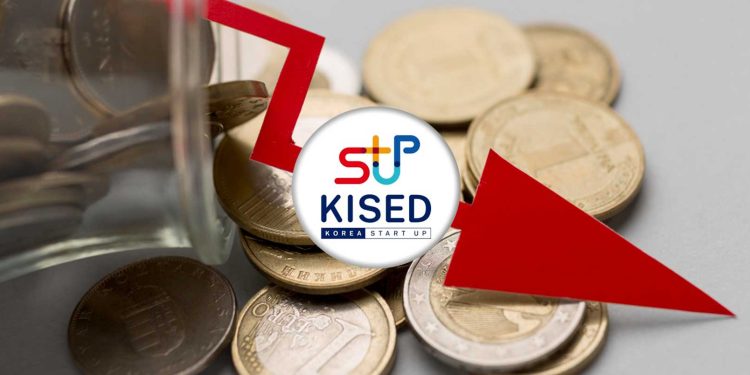Korea’s innovation economy depends not only on ambitious startup programs but also on how effectively public capital is managed. A recent audit has revealed government startup funds have been earning below-market returns, exposing a deeper inefficiency in the country’s financial framework—and raising fresh questions about how well policy mechanisms are fueling real innovation growth.
A Policy Gap in Korea’s Innovation Finance System
A recent audit has revealed that South Korea’s startup promotion fund—worth approximately KRW 260 billion (USD 190 million)—has been generating below-market returns for years.
The revelation underscores persistent inefficiencies in how government-backed capital is managed, raising broader concerns about whether Korea’s public financial mechanisms are effectively supporting innovation-driven growth.
According to the National Assembly Budget Office (NABO), the Korea Institute of Startup & Entrepreneurship Development (KISED) has been depositing large volumes of government startup funds into Shinhan Bank since 2019 under an agreement that delivers interest rates 0.82 percentage points below the Bank of Korea’s base rate.
The deal, still in effect, covers a total deposit averaging KRW 2.628 billion per year as of 2024.
Startup Fund Earned Below the Market Rate
Under the agreement, Shinhan Bank was designated as the exclusive custodian of the startup promotion funds, while offering lower interest in exchange for shouldering the ₩14 billion cost of developing KISED’s Project Management System (PMS) for startup program oversight.
However, NABO’s latest report—2025 National Audit: Public Institution Issues and Status—found that this arrangement has effectively reduced the amount of public interest income returned to the national treasury.
Since KISED’s interest revenue is transferred to the government, every basis point lost translates directly to less public capital being recycled back into startup programs.
In total, NABO estimates that KISED has received returns consistently below prevailing market rates for over five years, despite managing government funds meant to stimulate the country’s early-stage innovation pipeline.
Calls for Policy Reform and Contract Restructuring
Auditors have now urged corrective measures. The report recommends that KISED adopt a more flexible, market-based approach to fund deposits and renegotiate interest rates more frequently to align with base rate fluctuations.
Currently, KISED’s contract with Shinhan Bank operates on a five-year renewal cycle, locking in below-market interest rates for extended periods. In comparison, institutions under the Ministry of Economy and Finance, such as the Korea Fiscal Information Service, renegotiate rates annually to ensure optimal returns.
NABO emphasized that a shorter renewal cycle could prevent further erosion of returns and restore fiscal accountability, stating,
“The longer KISED maintains its below-rate deposit terms, the more the expected interest revenue that should be returned to the national treasury diminishes.”
Between Global Ambitions and Domestic Funding Bottlenecks
Although this issue may appear administrative, it reflects a deeper structural inefficiency in Korea’s innovation finance framework—where significant sums of public money meant to nurture startups are trapped in low-yield accounts.
This inefficiency limits the government’s ability to reinvest in R&D grants, global market acceleration programs, and early-stage seed funds—core elements of the startup ecosystem’s growth engine.
In a year when Korea is accelerating global startup initiatives and cross-border partnerships, this mismatch between fiscal management and innovation outcomes raises broader questions about the country’s ambition as the world’s top four global venture powerhouse.
Experts warn that without modernizing public capital management—especially within institutions like KISED—the country risks slowing the flow of funds that enable promising startups to scale globally.
Toward Smarter Innovation Capital Management
In the end, this latest audit serves as a reminder that innovation policy is only as strong as the financial mechanisms behind it. Korea’s ability to lead in technology and entrepreneurship depends not only on strong R&D or startup programs but also on how efficiently public funds are managed.
As the National Assembly Budget Office’s recommendations gain traction, the government faces a broader question: can Korea’s innovation ecosystem evolve from administrative compliance toward financial agility? Can they ensure that every won of public capital contributes to sustainable, competitive growth?
– Stay Ahead in Korea’s Startup Scene –
Get real-time insights, funding updates, and policy shifts shaping Korea’s innovation ecosystem.
➡️ Follow KoreaTechDesk on LinkedIn, X (Twitter), Threads, Bluesky, Telegram, Facebook, and WhatsApp Channel.






